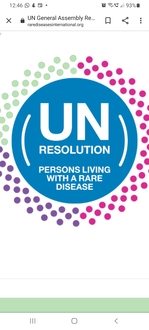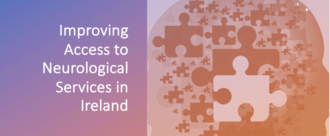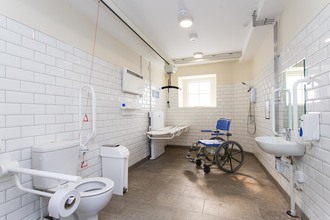- Featured
- Animal Rights
- Anti-racism
- Arts & Culture
- Children
- Climate
- Corporate accountability
- Crime
- Disability rights
- Economic
- Education
- Environment
- Food and Sustainable Production
- Gender Equality
- Governance and Transparency
- Health
- Housing
- LGBT Rights
- Mental health
- Northern Ireland
- Planning
- Privacy and Data Protection
- Rural Inequality
- Social Justice
- Trade
- Transport and Infrastructure
- Workers' Rights
- More
-
Reopen YouthReach in Iveragh, Southwest KerrySW Kerry needs more services for young people facing challenges, not less. YouthReach was run successfully for 20 years, so it can be done. As a community we embrace all our young people and wish them the same opportunities as their urban counterparts. Life can be a very bumpy path and if a young person hits a 'life bump' in their teens they deserve all the support a community can give. Access to education is a fundamental human right for everyone. Mainstream schools do not suit everyone, people need a second option.140 of 200 SignaturesCreated by Lucy Henehan
-
Keep Mayo's Beach Toilets Open All Year RoundToilets are an important public amenity which serve our most basic bodily functions. Access to public toilets isn't just a matter of convenience, it's a matter of dignity and social equality. Mayo's beaches are visited and used all year round, by a wide variety of people, engaged in a multitude of activities, and in all types of weather. People do not stop using the beaches during the Winter. In fact, for many people, the quieter Winter months are a more enjoyable time to visit the beach than during the peak Summer period. Why, then, does Mayo County Council deny access to public toilets at our beaches for half the year? In early October the toilets are locked up, the public bins are removed, and beach users are left without these basic facilities until the following April or May. For some people, access to a public toilet is simply about convenience - it's not necessarily a deal-breaker - but for many more people, a public toilet can be a determining factor in whether they visit a public amenity such as a beach. Women, disabled people, older people, people with children, and many others in our society are unfairly impacted by a lack of public toilets. Where these facilities exist, such as at our beaches, they should be accessible all year round. To be frank, the people least affected by the lack of public toilets are non-disabled men, who can pretty much pee wherever they like (and who don't have a menstrual cycle). For everyone else, if there's no public toilet available, there's a calculation to be made: How long can I spend in this place before I'll need to pee? Can I visit at all? Should I risk my dignity, and potentially my personal safety, by squatting somewhere out-of-the-way just to pee? By denying these facilities for half the year, Mayo County Council is effectively closing the beaches to a broad section of our society, and this is not equitable or acceptable. We call on Mayo County Council to immediately reopen the public toilets at all our beaches, and to keep these essential facilities open all year round.76 of 100 SignaturesCreated by Kieran Ryan
-
Pledge to Put Children First: End Orphanage CareInstitutional care is harmful to children and orphanage volunteering puts children at increased risk. There is a growing global movement working to transform the way we care for children. Care leavers and child protection experts, disability advocates, faith-based and community organisations have come together to better support families and other caregivers so that children can grow up in a family and community where they belong, instead of being placed into institutions. You can support this global care reform movement by making a pledge that you will neither promote nor engage in volunteering and/or visits to institutions for children. You can also pledge to further educate yourself and people around you about the harm caused by orphanage volunteering and institutions and to only support volunteering opportunities that put the best interests and wellbeing of children and families first.898 of 1,000 SignaturesCreated by Comhlámh In Global Solidarity

-
Upgrade and Invest in the Limerick – Nenagh – Ballybrophy Railway LineThe Limerick - Nenagh - Ballybrophy Railway is a vital piece of national rail infrastructure but it needs a more holistic approach to investment and upgrading in order to deliver a proper service that will attract passengers. Public transport throughout the Midwest region is not good enough. I would hope people throughout the Midwest and supporters of the rail network throughout Ireland would support our campaign. Our requests are not unreasonable, they are modest practical requests that would massively improve the services available on the line. Your support would be greatly appreciated.1,193 of 2,000 SignaturesCreated by Edward Kelly

-
UN General Assembly Resolution on Addressing the Challenges of Persons Living with a Rare DiseaseThe 300 million PLWRD around the world and their families face common challenges in all aspects of their daily lives. As a population with increasing vulnerabilities, they are disproportionally affected by stigma, discrimination and social marginalization, within their social environment and in society at large. The paucity of knowledge and expertise on rare diseases and the lack of awareness of the challenges faced by PLWRD mean that they are psychologically, socially, culturally and economically vulnerable. b) There are a number of synergies between the rare disease community’s needs and goals, and those of the UN 2030 Agenda and its Sustainable Development Goals1 ,38 of 100 SignaturesCreated by Anna Doyle
-
Do not reroute bus services in Dún LaoghaireCouncil officials in Dún Laoghaire are proposing to reroute the 46A, 75, 7, 7A, 7D and 63 bus routes from George's Street Lower. This will remove the bus stops from Marine Road and St Michael's Hospital. Thousands of local hospital users and people with mobility challenges rely on these bus stops. There has been no consultation with bus users or groups representing people with a disability. The proposal should be suspended to allow a proper consultation with stakeholders and local representatives.7 of 100 SignaturesCreated by C M
-
Remove restrictions on Birth Partners in Northern IrelandBirth partners are not visitors; they often are the other parent to the baby/babies and provide essential physical, mental and emotional support during pregnancy and birth. While pregnancy is not an illness, pregnant people are particularly vulnerable emotionally and mentally, and having to attend appointments without the support of a trusted partner can leave them feeling alone, scared and anxious. This can lead to mental health issues. Prior to the pandemic, one-third of women found their birth experience traumatic, which can significantly affect their lives, their relationships and their transition to parenthood; restrictions are compounding this. Birthing people and their partners should be treated in an holistic way, protecting their physical, emotional and mental health.714 of 800 SignaturesCreated by Mothers Matter NI
-
Investigate Data Collection on Autistic PeopleThe rights of autistic people have been gravely breached. The Department of Education and the Department of Health have conspired to share and indulge in private information of 48 autistic people in order to create barriers for them to obtain essential services. This stands in clear violation with our rights under the UNCRPD or the protection of those seeking justice under the Equal Status Act, 2000.3,278 of 4,000 SignaturesCreated by Autistic Adults Ireland
-
Improving access to Neurological services in IrelandThis is extremely important as many people are left to suffer on long waiting lists or are forced to pay privately for services. Covid 19 has also had a negative effect on accessing these services and as a result investment is vitally required to keep these services running and develop them further, so they are accessible for all. For those who are unable to pay for services privately or are not able to travel for services ,accessing neurological services becomes extremely inequitable and this is something that needs to change.98 of 100 SignaturesCreated by Aoife Homan
-
Improving Access to Assessments and Services for Children with Autism Spectrum DisordersThis is important as many children with autism spectrum disorders (ASD) are forced to wait several years for an assessments of their needs and are then placed on long waiting lists for access to recommended services. Parents of children who require an assessments of their needs should not be forced to resort to the private healthcare system in order to access these services. Accessing these services privately is very costly therefore, people who are financially better off can gain access to assessments of needs (AON) and services much faster than those who cannot afford to go private. The pathways to AONs and services in Ireland for children with ASD are also very unclear. This lack of clarity contributes to the issue of long waiting lists and poor access to such services. The issue of unequal and poor access to these services is an unfair socio-economic inequity based on financial ability and knowledge of how to navigate Ireland’s complicated healthcare system. It is important to address these issues and improve access to AONs for children with ASD in order for children to have access to early interventions which are closely linked to potential positive developmental outcomes. The first few years of a child’s life are critical to their physical, mental, emotional, cultural, personal and competency development hence why early intervention is essential. Ensuring access to assessments and services in a timely manner is a right that no child with a disability should be denied.240 of 300 SignaturesCreated by Anna Connolly
-
Make Free At-Home STI Testing Pilot PermanentThe HSE and SH:24 partnered to offer free STI home test kits as part of a pilot project, to find out how online services can help support people’s sexual health. These at-home STI tests were LGBT+ inclusive and were first made available to order online for residents of County Dublin, Cork and Kerry, however, as of January 6th - less than one day after the pilot launched, the service was shut due to the unprecedented high demand. The high number of sign-ups clearly illustrates the strong support for continuing and expanding this service nationwide. This scheme is particularly necessary at present as STI clinics are closed due to COVID-19, risking long waiting lists upon re-opening, and worsened health outcomes for those who could not access testing and treatment. At-home STI tests shift those with less complex sexual health needs from clinics to an online service thus reducing clinic waiting times, is safer during COVID-19, removes transportation barriers and encourages more people to get tested due to easier access. Free STI tests removes the financial barriers to testing services. Sign the petition to show your support for continuing & expanding this scheme!1,522 of 2,000 SignaturesCreated by Róisín Hackett
-
Make Changing Places Toilet Facilities Mandatory in Public BuildingsImagine being in permanent lockdown. This is the reality for thousands of children and adults with disabilities who are restricted in where they can go and what they can do because they will not find a toilet with the equipment they need. They often have to go through the indignity of being changed on the floor of a public toilet or stay isolated from their communities at home. Imagine not being able to find a toilet when you need to. Changing Places Toilet Facilities are different from standard accessible toilets. They provide extra equipment like a hoist and an adult sized changing bench. In Ireland there are only 15 Changing Places Toilet Facilities. There are over 1500 in England and new legislation will make Changing Places Toilets mandatory in new public buildings from 2021. In Northern Ireland there are approximately 40 and the NI Assembly is now following England and has committed to amending their building regulations. The Irish Government should follow the example of England and change Irish building regulations to ensure Changing Places Toilet Facilities are mandatory in public buildings. Without Changing Places Toilet Facilities available throughout the country people with disabilities are denied a basic human right and continue to be excluded from everyday life. #WeAllGottaGo7,819 of 8,000 SignaturesCreated by Changing Places Ireland

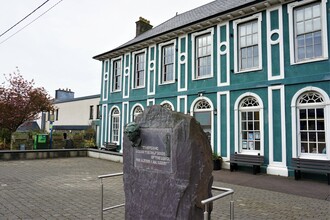

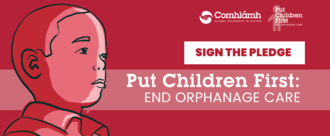.png)

